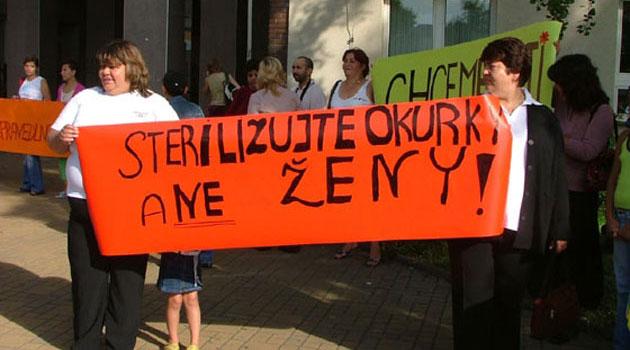Czech hospitals refuse medical records to women sterilized against their will

Several hospitals in the Czech Republic are reportedly refusing to give women who were sterilized in their facilities without their informed consent the medical records of those procedures. In some cases records are said to no longer exist because they were destroyed during recent floods.
The Czech daily Lidové noviny (LN) reports that these women evidently will not have the opportunity to request compensation for these harms without their records. News server MedicalTribune.cz has reprinted an excerpt from the LN article online.
The article tells the story of a 55-year-old woman named Lenka who lives in Prague and gave birth in a hospital there during the 1980s. Doctors decided to perform a Caesarean section, and after the baby was delivered, they sterilized her.
She did not learn that she had been sterilized until she came out of the anaesthesia. The doctors never consulted the surgery with her.
Not only did Lenka lose the chance of becoming pregnant again, her marriage fell apart as a result. Despite this, she evidently will not have the opportunity to request the compensation that victims of such unwanted sterilizations are to be awarded by a new law now being drafted by the Czech Human Rights Ministry together with the Czech Helsinki Committee.
"U Apolináře Hospital told me they lost my medical records during the floods in 2002," says Lenka, a college-educated woman who has decided to go public about what happened to her to show that the victims of such unwanted sterilizations were not only from the Romani community. Some hospitals are reportedly also refusing to provide the necessary medical records to their former patients.
"The hospital claimed to me that the relevant records had already been destroyed. They said they destroy them every 10 years. I went there a second time, I argued with them, and in the end they found them and gave them to me," says Olga Kováčiková, another victim of such treatment.
Hospitals in the Czech Republic must store medical records for at least 40 years following a patient’s most recent hospitalization or 10 years after a patient’s death. "Some hospitals are deterring patients from acquiring their medical records or denying their existence. Evidence of the fact that sterilizations were once ordinarily performed for ‘social’ reasons puts the doctors’ work in a bad light," says Lucie Rybová, director of the Czech Helsinki Committee, an NGO participating in drafting the law to compensate the victims.
According to Rybová, doctors referred to state-issued "indicators" to explain their performance of sterilizations, mainly during the 1970s. "We have evidence that the indicators according to which sterilizations were performed – i.e., if a woman had four children by the age of 35 or three children by the age of 36 – targeted certain groups in the population to make sure they did not have more children, either due to their alleged ‘inadaptability’ or because the mothers were disabled," she says.
How to deal with missing records is one of the main questions being addressed by the inter-ministerial group now designing the law. The question remains open as to whether and how to draft the law so it will apply to victims of sterilization prior to 1974, i.e., for cases where hospitals are no longer required by law to have preserved the records.
